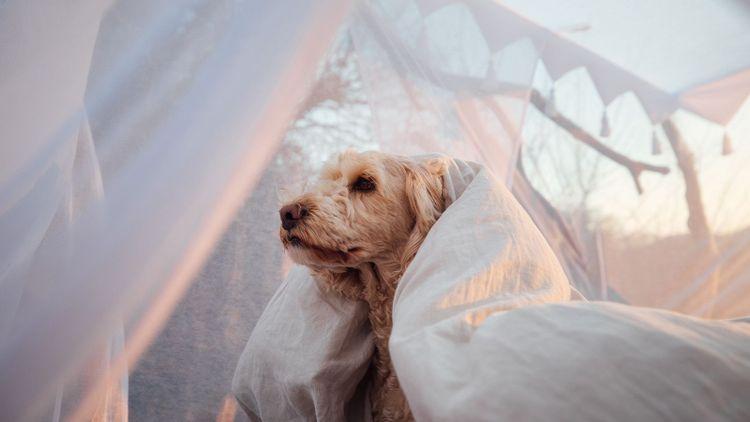
How to train your dog to sleep in a new place
5 minute read
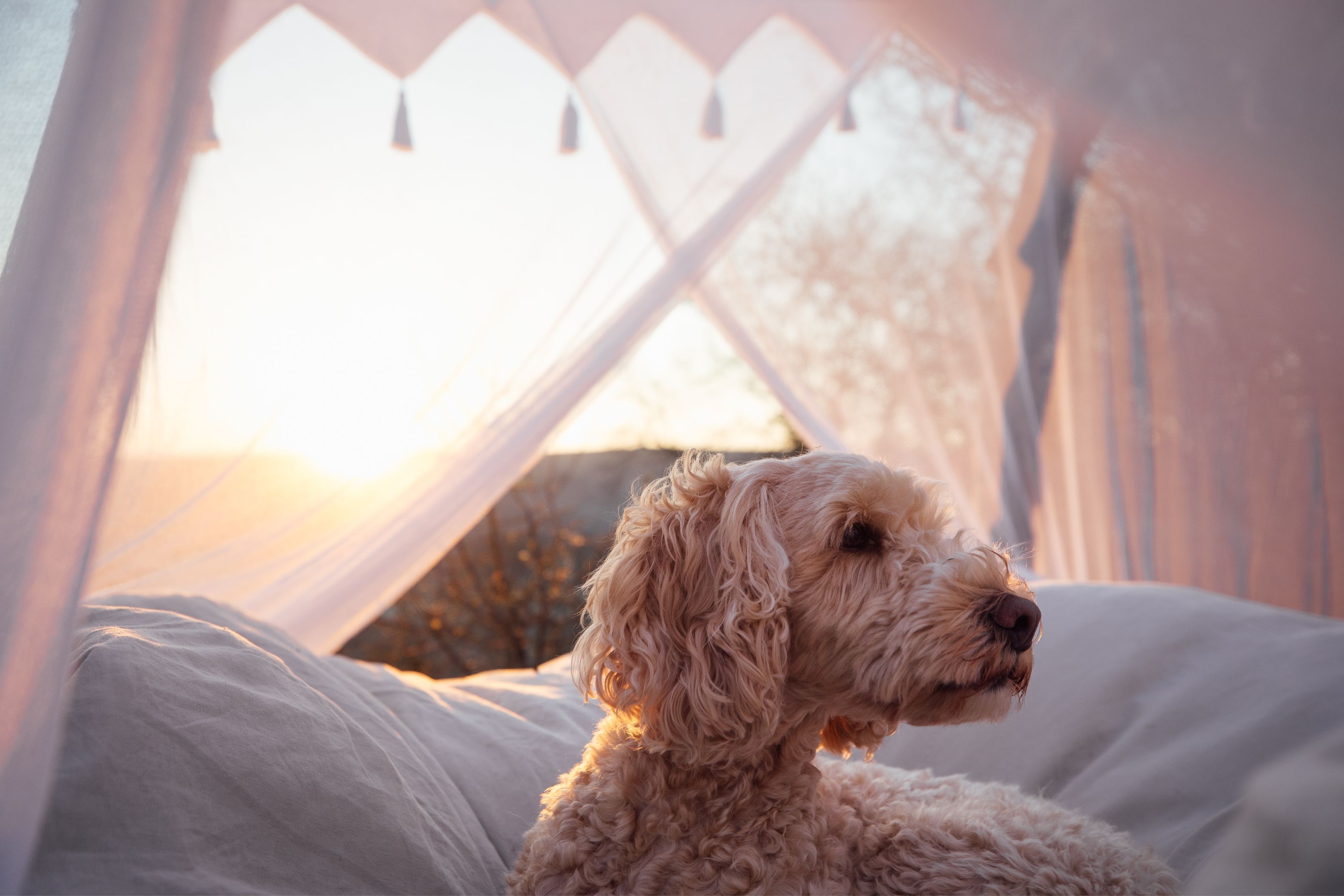
Why does my dog struggle to sleep away from home?
First things first, let’s look at the reasons why your dog may struggle to settle and sleep when away from their usual home.
The most common reason is that they are unsettled, and feel some level of anxiety or worry. Perhaps they have never been away from home before, or perhaps the sounds, sights and smells are too unfamiliar. Is it quieter or louder than where they usually sleep? Are they missing a key item such as a blanket or bed that they usually snuggle up with? If your dog is used to sleeping with you, or with another pet nearby? This can also impact them if they suddenly find themselves alone and in new surroundings.
Thinking about why your dog is struggling to settle, and exactly what might be different about their new sleeping place, can help you to unpick what is going wrong and formulate a plan to overcome this.
Read on for my top tips for helping your dog to sleep in a new house or holiday home.
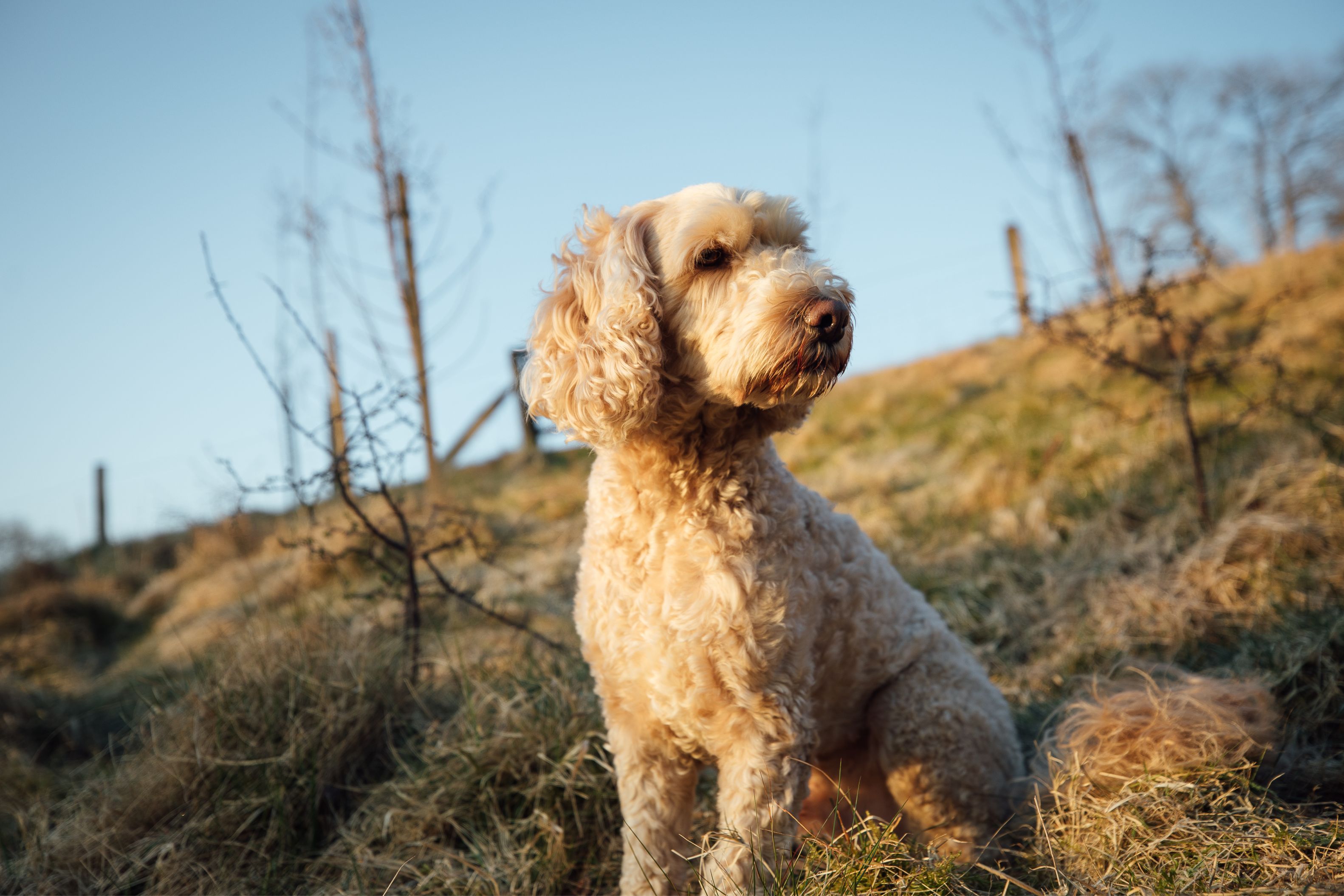
Tip one: Arrive early
Whether you are staying at a holiday home, have moved to a new house, or staying a few nights with friends or relatives, where possible, arrive earlier in the day. This will allow your dog time to become acquainted with their surroundings and feel more at ease. Upon arrival, introduce your dog to their new home in a controlled manner.
On lead or in your arms can be helpful here, as can offering tasty treats and praise to reward calm and settled behaviour. Make the experience positive and inviting.
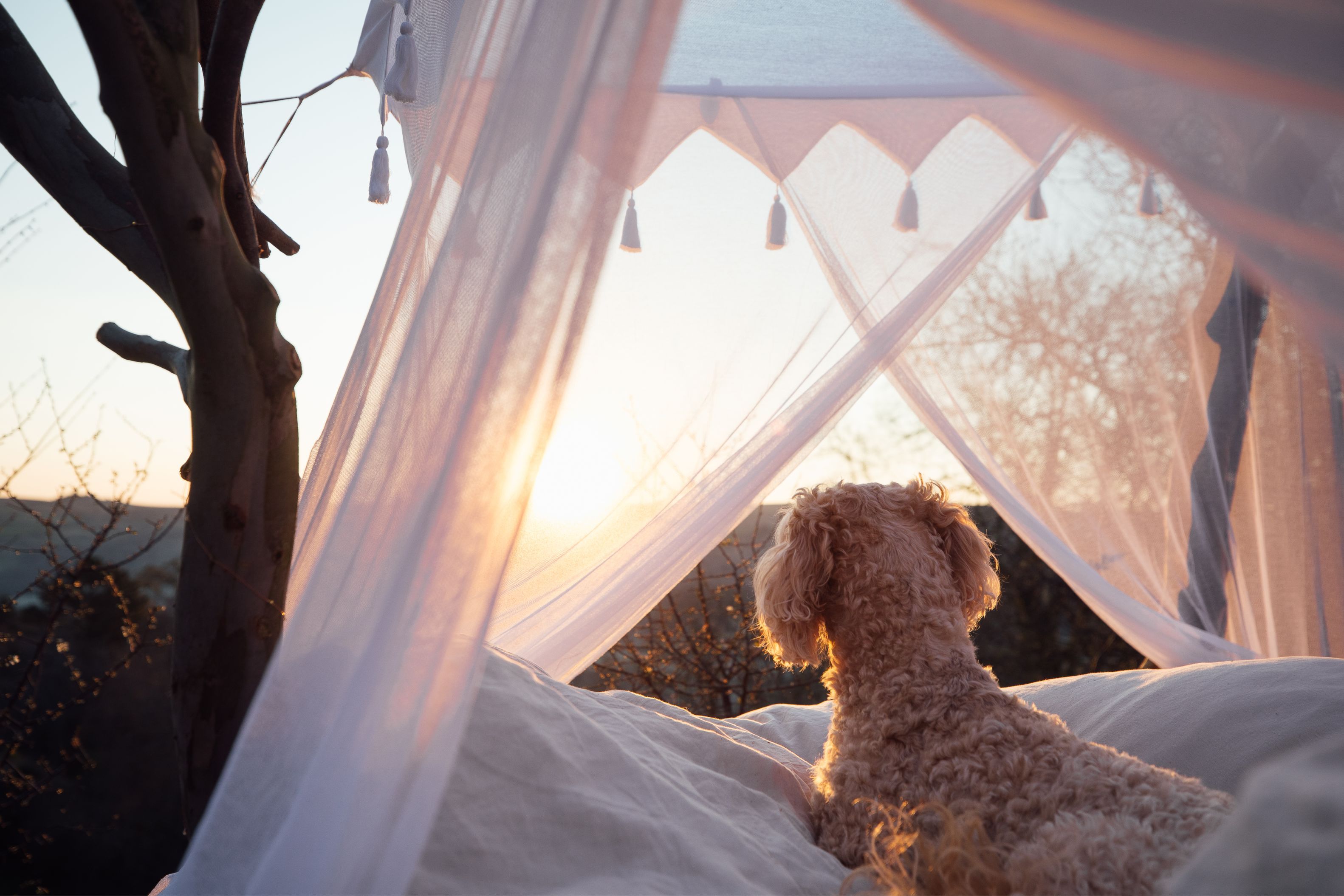
Tip two: Set up a comfy bed or safe space
This should also be where your dog will sleep later on that day. If possible, use their bed from home or a familiar travel bed or blankets that they have slept on before – comfy items that smell like their usual home! If appropriate, you can sit with your dog and offer affection on their new bed area to make it feel safe and inviting.
Offering a tasty food dispensing toy or chew can also help to encourage your dog to relax in this space and make it positive. Staying close initially, as your dog becomes acquainted, can also have the same effect. A perfect excuse to put up your feet and have a cuppa!
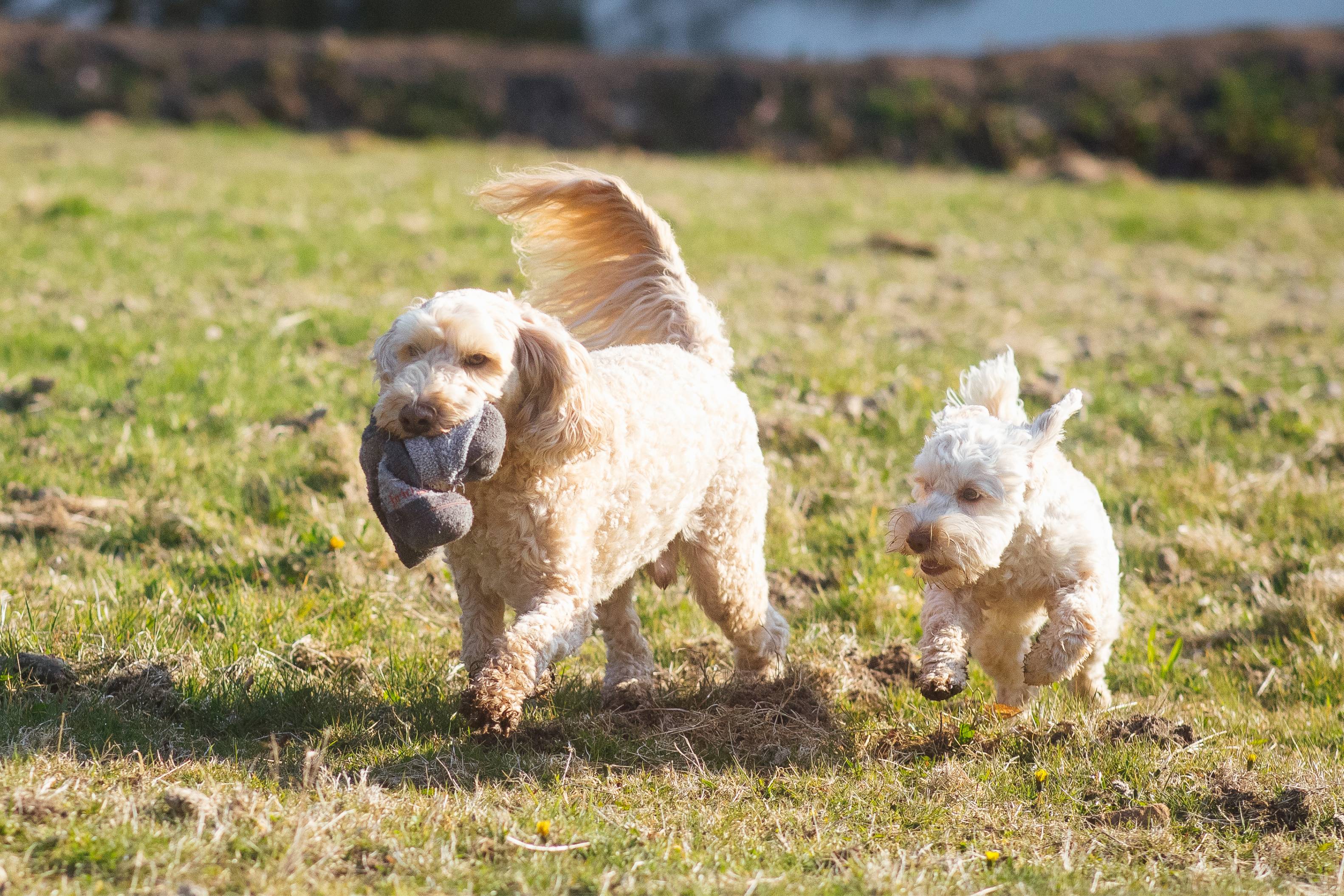
Tip three: Exercise your dog constructively
In order for your dog to be able to relax and sleep, they must of course be tired! By this, I do not mean running your dog until they are exhausted, but instead making sure that they have had an appropriate level of exercise for their age, breed type and physical capabilities.
Playing games and training can also be great to add to your walks to provide an added layer of physical and mental enrichment. Being in new surroundings is also likely to tire some dogs – there may be a lot for them to take in and think about and, although a lot of this may not be physical, it can certainly take a lot of mental energy!
A constructively exercised dog and one whose mental and emotional needs have been met throughout the day is more likely to settle and sleep rather than stay up worrying or even remain awake because they simply have too much energy. Make it easier for your dog to sleep by ensuring their needs have been met.
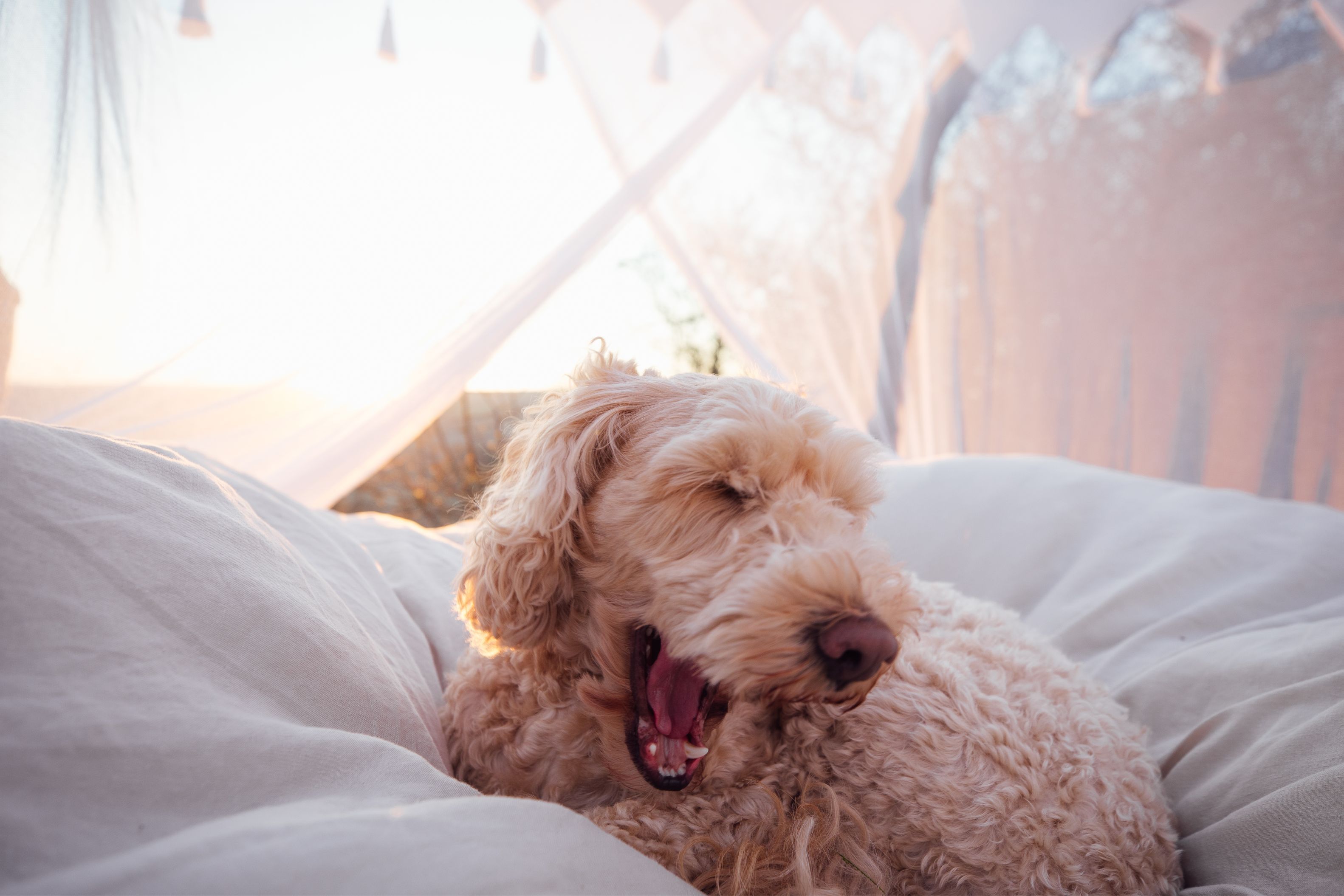
Tip four: Follow your usual bedtime routine
Even us humans have sleep associations, which include the routines that we run through in preparation for going to bed. Your dog is no different! To help your dog sleep in a new place, try to replicate the same associations and routine as always. For my dogs this will be being taken outside to toilet, the turning on of some soft music (I like to play Classic FM!), and then a bedtime biscuit followed by lights out.
More on playing music – if you don’t usually play music whilst your dog sleeps, consider adding this to your bedtime routine before moving or staying away. Soft music can be relaxing for your dog, and it can also help to drown out sounds that your dog might become alert to or otherwise be worried by. Overall, it can help with a better night's sleep.
Tip five: Seek professional advice if your dog is struggling
If the above tips don’t seem to be improving the situation, don’t be afraid to adapt and do what is necessary in the moment for you and your individual dog.
You know your dog best, and even if this means opting for a temporary sleeping arrangement that’s less than ideal for you all, it's better that you all get some shut-eye with as little stress as possible in the short term. Over time you can build back to your ideal sleep scenario.
An accredited and experienced behaviourist can assist with this if necessary, and create a bespoke plan for your individual dog and scenario.
So, there you have it, my top tips if you are worried your dog won’t settle in a new house or away on holiday. I hope you have found them useful!
Dogtor™ Adem
Behaviourist & Trainer